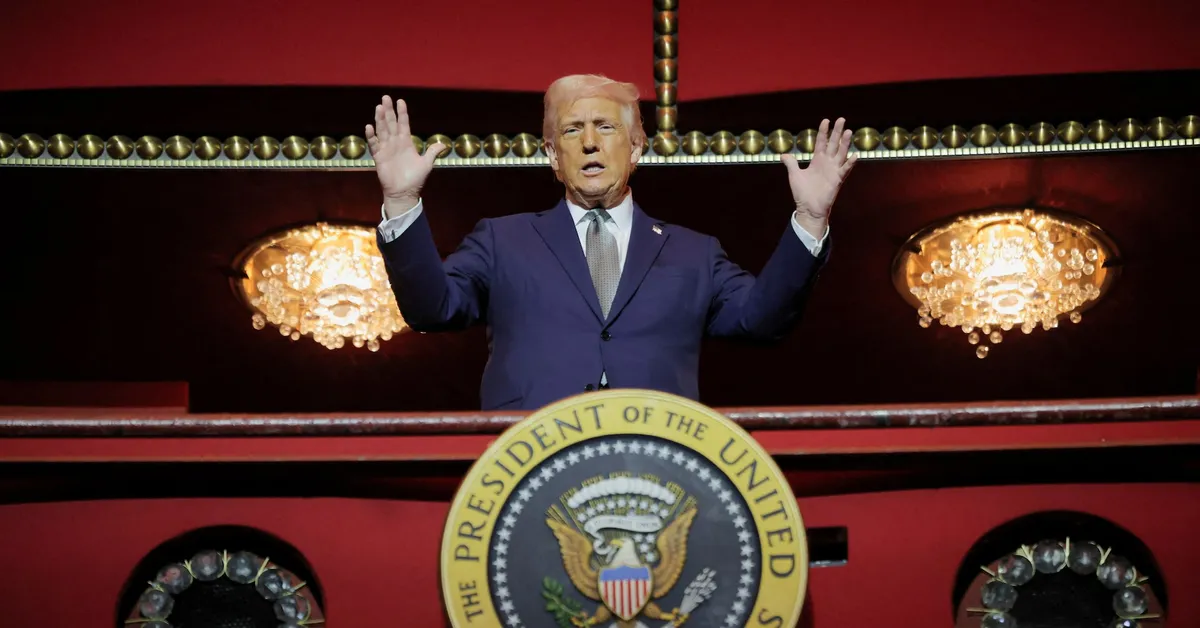
On March 18, in Wilmington, Delaware, several federal judges have raised concerns regarding the Trump administration's compliance with various court orders related to foreign aid, federal spending, and the dismissal of government employees. The administration disputes these claims, leading experts to speculate about the potential implications of a court ruling that suggests the executive branch is ignoring judicial directives, with some describing the situation as a looming constitutional crisis.
In the U.S. legal system, when a party involved in a civil case fails to adhere to a court order, the opposing party can request that the court hold the non-compliant party in contempt. Judges possess the authority to find someone in contempt even without a formal request. If found in contempt, the court can impose various penalties until compliance is achieved, which may include fines or even jail time. Notably, in 2022, former President Trump was held in contempt by a New York judge and fined for not producing documents subpoenaed during a civil investigation into his business practices, although he eventually complied.
The U.S. Constitution mandates that the president's administration must comply with lawful court orders, which the administration can appeal if it believes the order is unjust. Non-compliance can manifest in various ways. In the most severe cases, a government agency might acknowledge the validity of an order but refuse to act on it. This scenario recalls historical instances, such as President Abraham Lincoln’s refusal to comply with a court order during the Civil War.
Recently, two federal judges have voiced concerns regarding the Trump administration's adherence to their orders. A Washington judge questioned whether the administration violated a ruling that temporarily barred the use of a 1798 wartime law to deport Venezuelans. The administration refutes these claims, asserting that no individuals were removed under the Alien Enemies Act. Judge James Boasberg has requested additional information from the administration to clarify the situation.
In San Francisco, U.S. District Judge William Alsup indicated that the Trump administration seems to be placing fired probationary employees on administrative leave instead of reinstating them, as ordered. The administration asserts compliance with the judge’s directive. Furthermore, the Trump administration has informed U.S. Judge Amir Ali that complex payment systems are hindering the resumption of foreign aid-related payments, leading to a proposed timeline for compliance rather than a strict deadline.
Legal experts indicate that judges typically avoid direct confrontations regarding court orders, preferring to modify demands to elicit compliance. By setting compliance benchmarks and deadlines, issues of non-compliance are often resolved without the need for sanctions. Consequently, U.S. judges rarely impose fines or monetary penalties on heads of federal agencies, even though such measures are common for private defendants. An exception occurred in 1999, when federal judges found the secretaries of the Treasury and Interior Departments in contempt for failing to produce documents, imposing limited sanctions that required the payment of plaintiffs' attorney fees.
The reluctance to impose sanctions against the federal government may stem from judges' apprehensions surrounding sovereign immunity, the legal doctrine preventing the government from being sued without its consent. In one notable case, a U.S. District Court's financial penalties against the Secretary of Health and Human Services were reversed by a U.S. Court of Appeals, citing sovereign immunity. The enforcement of contempt sanctions is managed by the U.S. Marshals Service, which operates under the Department of Justice. This raises concerns that if the Trump administration chooses non-compliance with a court order, it could instruct the Marshals not to enforce any sanctions, potentially exacerbating the situation and leading to a deeper constitutional crisis.
In summary, the ongoing legal challenges and questions surrounding the Trump administration's compliance with court orders pose significant implications for the balance of power among the branches of government. As the situation evolves, the judiciary's ability to enforce compliance remains under scrutiny.